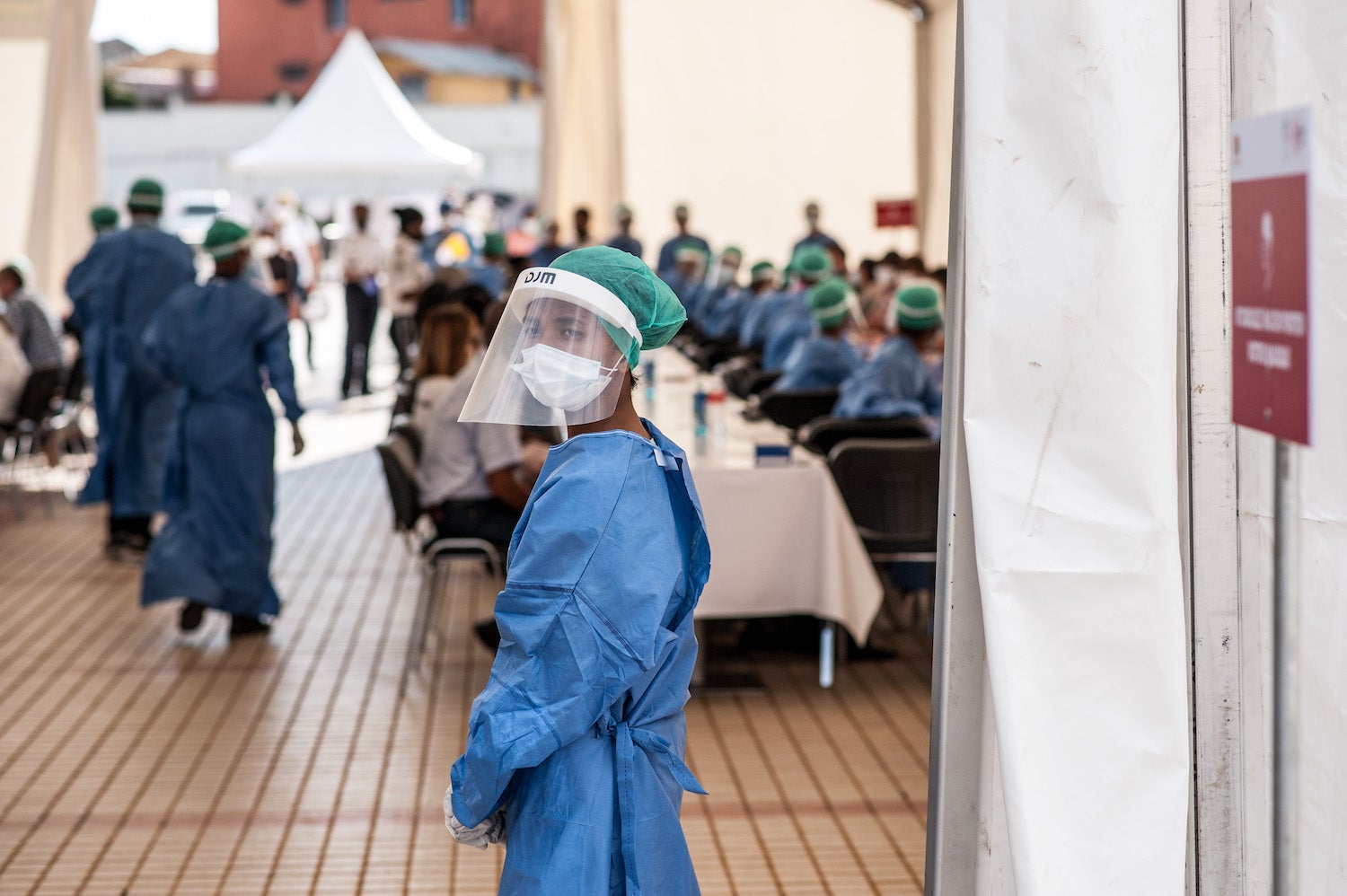Health Services
Bearing the brunt of under-resourced systems
Image

Women are overrepresented in frontline health and care positions, putting them at increased risk of exposure to COVID. At the same time, health services for women and girls have experienced interruptions in the face of overburdened health systems.
What can governments do?
- Ensure all care sector professionals have access to PPE, including menstrual hygiene products.
- Ensure women’s equal representation in health sector leadership and equal participation in decision-making processes.
- Reduce barriers to accessing hygiene and sanitary materials.
- Ensure continuity of core health services, including sexual and reproductive health.
- Ensure accurate COVID and medical information reach all women and girls, including those in refugee and IDP camps, remote and rural communities.
What is UN Women doing?
- Providing key data and policy recommendations to help governments mitigate the gendered health impacts of COVID-19.
- Driving systems-level improvements in access to health care, including:
- Partnering with national and state governments to strengthen health systems in South Asia;
- Collaborating with other UN agencies to expand health services in the Eastern Mediterranean and Middle East and North Africa region.
- Supporting the provision of PPE and sanitary materials to women and girls, including:
- Providing sanitation and hygiene supplies in Moldova, Serbia, Kyrgyzstan, El Salvador, Vanuatu, Indonesia, Kenya, Zimbabwe and the Central African Republic;
- Funding, coordinating and supporting mask production efforts in Camaroon, Rwanda, Bangladesh and Serbia
- Providing up-to-date information on COVID-19 prevention and services, including:
- Conducting outreach to vulnerable women and refugees in Jordan and Syria;
- Supporting awareness raising efforts in Libya and Bangladesh;
- Supporting the youth-led HerStory initiative, which established a task force to ensure easier access to clear and accurate information on COVID-19 across the Arab States.






